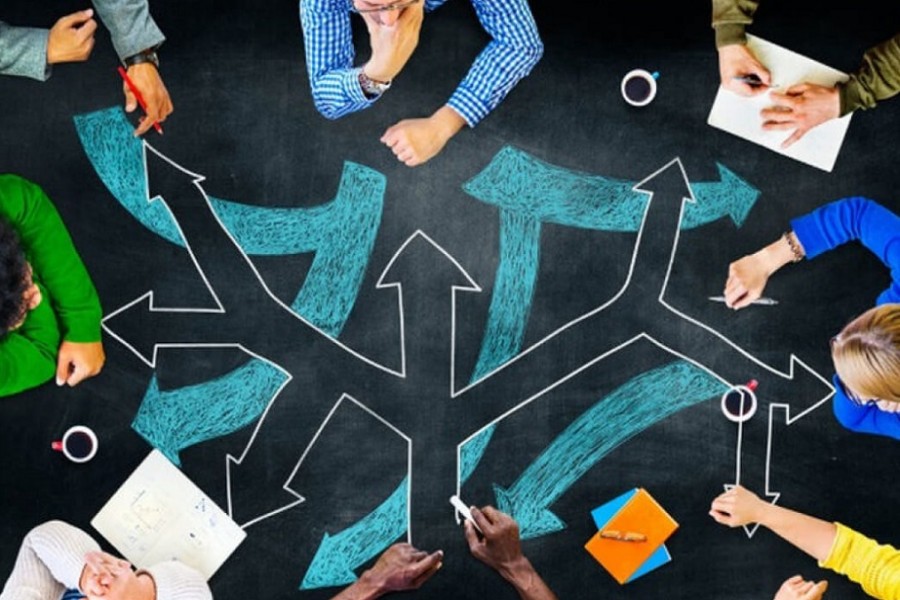Our daily lives are impacted by economics in both visible and subtle ways. Economics shapes many of the decisions that an individual makes regarding job, leisure, spending, and how much to save. Let’s try to comprehend how.
Purchasing satisfaction
This is a common phenomenon of every buyer around the world, but in economics, we call it the marginal utility theory.
This could be applied to iPhone buyers versus Android buyers. The concept is that a sensible person evaluates the satisfaction gained, which is also known as ‘marginal utility,’ from the goods and services against the paid cost.
There is actually no loss or benefit when it comes to buying either of the brands. This completely depends on every individual’s preference and the maximum utility of obtaining the good.
To maximise the overall well-being, the prospective customer will usually buy the goods that maximise total satisfaction within the budget.
Introducing variation in products
Brands like Sailor and Yellow often bring new collections to the clothing industry. The main reason is simply to attract more customers to sell their products, but it also has an economic reason behind it.
The economic explanation mostly applies to the loyal customers of the brand, which is known as ‘diminishing marginal utility.’ This phenomenon means that every time a customer buys the same design of dress from the shop, the additional satisfaction gained from it reduces over time.
The happiness diminishes if they are faced with the same sets of clothes. Thus, these brands evaluate consumer behaviour and try to introduce varieties.
Even in the case of restaurants or bakers' shops, diverse dishes are available due to the diminishing marginal utility of consumers. So that whenever any potential buyer visits, they are presented with various choices to boost their satisfaction level.
Opportunity cost in decision making
Every decision we make in our daily life, we let go an opportunity cost. To better understand, let’s see an example.
When the exam approaches, a candidate may have two options - either to study effectively, or spending time on Facebook, napping, or watching TV shows. There is an opportunity cost linked with each decision.
If the person chooses to spend his/her leisure time in this manner, the opportunity cost for not studying may result in bad exam scores, which may lead to a reduction in future earning potential.
When a decision is made, opportunity cost is the worth of the next-best alternative; simply, it is what is given up.
Alternatively, if the student prefers to study sincerely, then the opportunity cost for the individual will be the leisure activities that could be done. An individual always considers the opportunity cost, which is the alternative choice, before making the final decision.
The positive externality of the COVID-19 vaccine
The recent epidemic has led the world to invest in vaccines to bring down the disastrous COVID rate worldwide. The role of this COVID-19 vaccine is an illustration of the spill-over of positive externalities. Now, what is ‘positive externalities?’
Put simply, when your certain action or decision makes someone beneficial who is not even a bit connected to your action or decision, it is called externality.
The invention of the vaccination has a positive knock-on effect that benefits both the person who uses it and everyone else around them. Herd immunity can be achieved when an abundant number of people have been vaccinated against a disease and have generated protective antibodies against future infection.
Vaccines, in contrast to natural infection, produce immunity without causing diseases or other side effects. Vaccines have successfully eliminated communicable diseases such as smallpox, polio, diphtheria, rubella, and many others by utilising the principle of herd immunity.
Herd immunity leads to positive externalities in the environment that allow the population to be protected from a disease even if some people cannot be vaccinated, such as infants or individuals with impaired immune systems.
Despite the fact that policymakers and economists use the jargon ‘externality,’ few people can relate it to real-world activities where externalities are the results of people's daily activities.
But these are important to understand because the economy dictates our decision making. And the more we understand the economy, the better our decision making will be.


